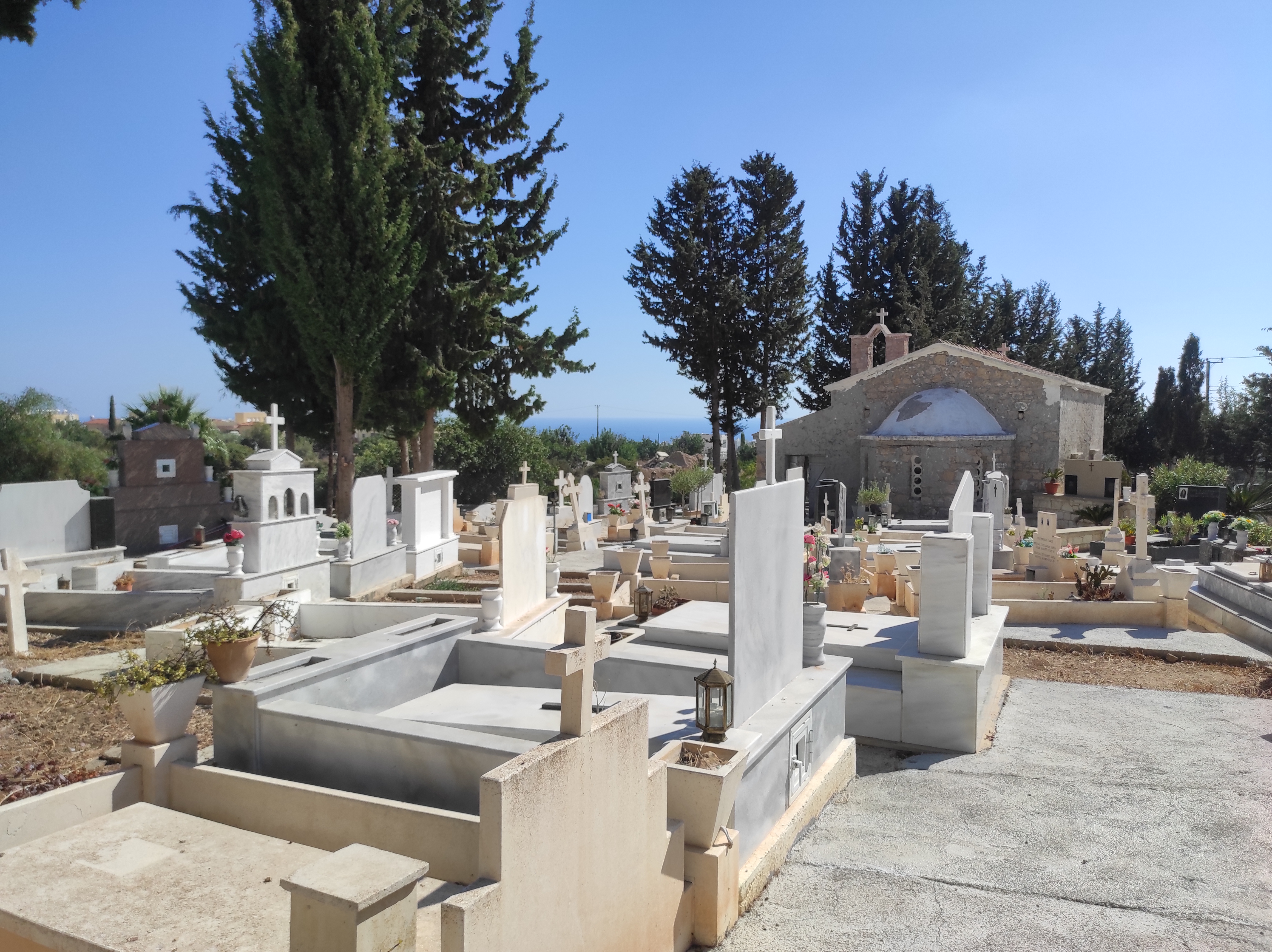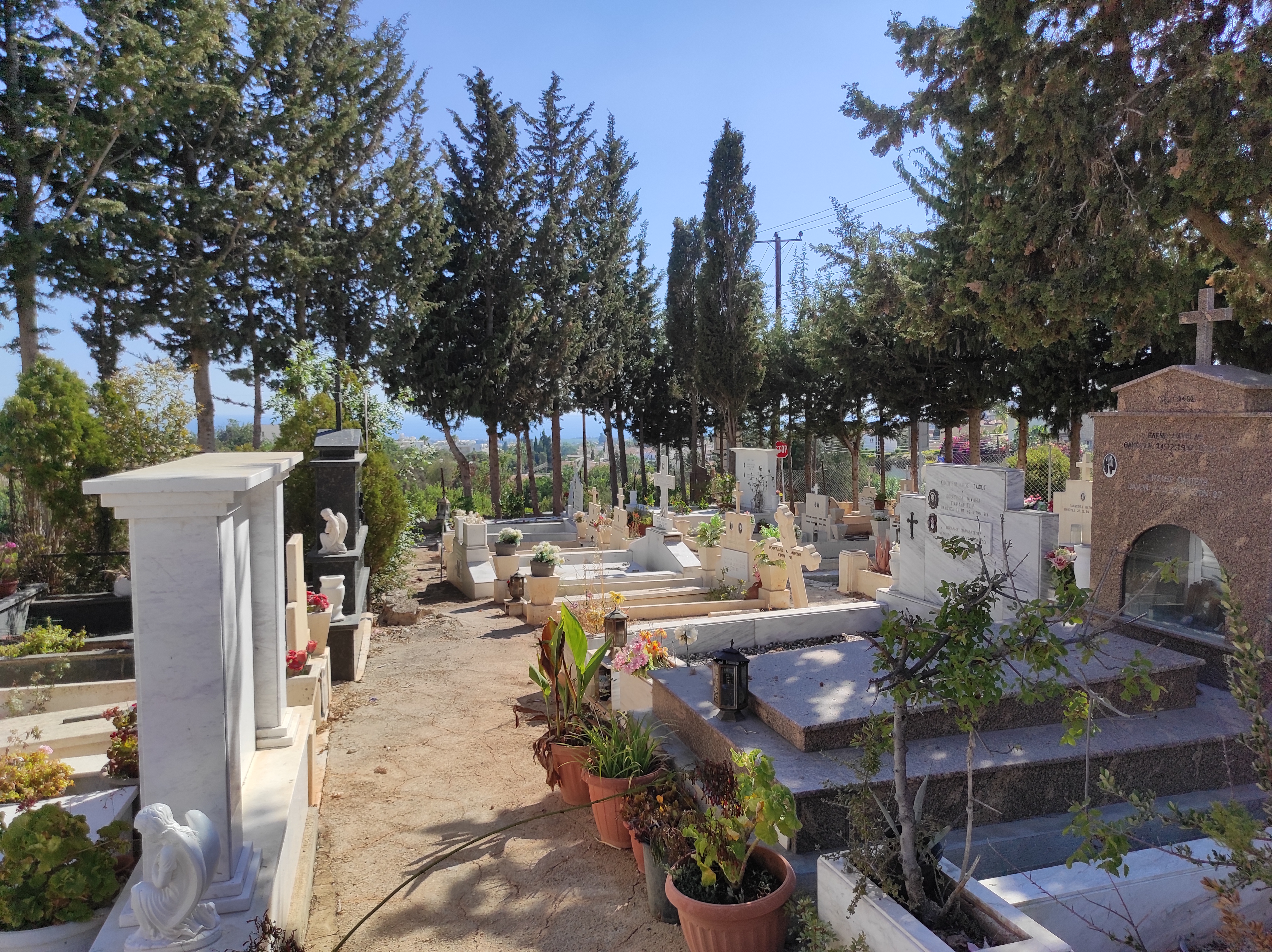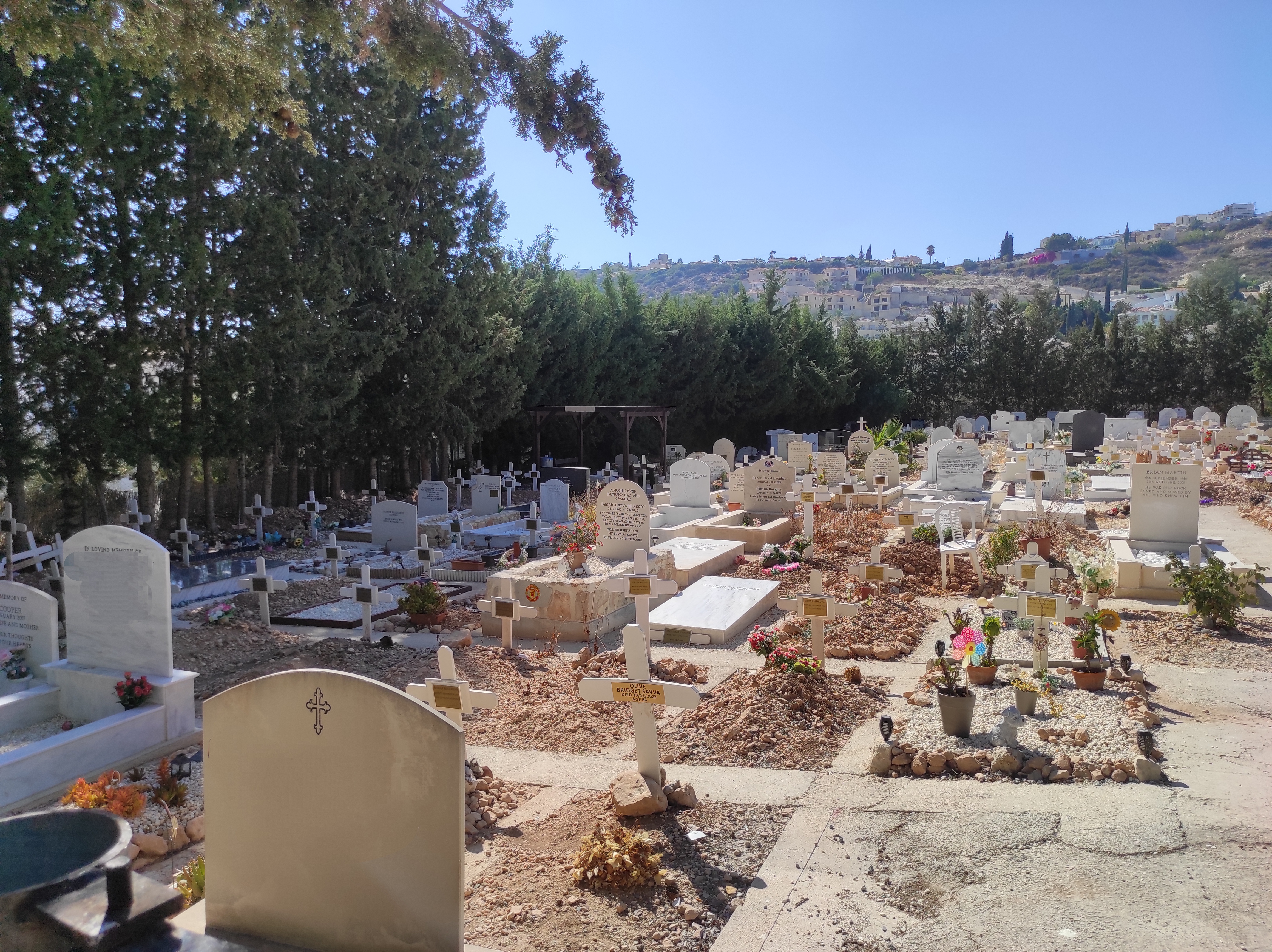While long-awaited crematorium plans still pending
Concerns have been raised by long term residents of Peyia about the state of the municipality’s “foreign” cemetery. Residents contacted the Cyprus Mail this week seeking answers about the site’s overpopulation and challenging access to graves.
“My late wife is buried at the far end of the graveyard having passed away in 2012,” said one resident, originally from the UK who now lives in a nearby village.
“We chose to bury my wife there, as my in-laws had been living in Cyprus for years and were always going to be buried in Peyia,” he said.
Access to his wife’s grave has recently become extremely difficult, even for an able-bodied person, he said, as space has run out and pathways are now being dug up to accommodate new graves.
“This matter needs to be resolved. Denying persons access to pay their respects to a loved one denies them their rights.”
The 64-year-old Briton, who has lived on the island for 20 years, also expressed frustration that required maintenance of the site – which ought to be covered by council taxes – was not being done.

“I had to clear away vegetation by my wife’s grave. A lot of the graves are overgrown,” he added, and rubbish collection was not happening as frequently as needed.
When the Cyprus Mail visited the site, there was indeed a marked contrast between the British cemetery and the Orthodox cemetery across the street.
Peyia, notorious for its rapid – some say chaotic – development in the 1990s is also home to a sizeable expat population, the largest in Paphos.
“They are okay to sell the British retirees villas but not to plan for their burials,” one disgusted local said.
Speaking on the issue, a senior official from the Peyia council acknowledged the problem and said the municipality was in fact in the process of securing the required permits to expand the cemetery. To this end, it had purchased a near-by plot to the tune of €500,000.
“We hope to be able to offer the new space within months, but the timeframe will also now depend on teething problems caused by the local government restructuring [new district self-governance organisations],” he said.
“Peyia is the only community to have separate graveyards for non-Orthodox and Orthodox burials.”
This came about not out of any prejudice but because in the late 1990s the municipality saw fit to specifically set aside land for the needs of its burgeoning expat community.
Through random circumstance, the Greek and expat cemeteries ended up on opposite sides of the road, he said.
“If you think access to graves in the British cemetery is hard you should see the old Orthodox side,” he said, noting that this was Peyia’s original cemetery and had existed since the late 1800s.
The community official, a civil engineer by profession, explained how the older the cemetery, the greater the difficulty with access, as graves were not always planned out in linear design with footpaths in the past.
“None of the paths you see in old graveyards are accessible for anyone using a wheelchair,” he said.
Nonetheless, during our visit, it was clear that not only were the paths overall narrower in the British cemetery, but the graves were also simpler and smaller, often without grave slabs.

Another official, who wished to remain anonymous, attributed this stark difference to cultural and other factors.
“The municipality is responsible for maintaining the paths and for rubbish collection,” she explained. “After that, the difference could be cultural, or even because some of those buried in the British cemetery no longer have any living relatives who come regularly to Cyprus to tend to the grave,” she said.
Asked if the problem of overcrowding and access is widespread throughout the Paphos district, manager and owner of the Guardian Angels funeral home, Maureen Watt, said the problem seems to be acute in Chlorakas and Peyia at present and that several other communities had already moved to secure plots for new graveyards.
As the driver behind the island’s long-anticipated first crematorium, MW Crematorium Cyprus Ltd (originally expected to begin operations this year), Watt said there is certainly a need for alternatives given Cyprus’ ageing population.
According to the latest available census, over 65s constituted 26.7 per cent of the population in 2022 which will rise to 32 per cent in just five years, and by 2060, over half of the island’s population will be over 65. In Paphos, 38 per cent of that population is foreign-born.
The cost of a burial plot in the district ranges from €350 to €5,000. Costs are assigned on a scale taking into account how long a person has lived in the community and whether they pay property taxes or rent.
Peyia does not include burial plot fees in its annual taxes, but each community has its own arrangements.
Watt, who is co-director of the crematorium project, said that currently cremations from Cyprus can be arranged in Vienna or the UK for around €5,000, excluding funeral fees, while at a local crematorium this fee could be dropped to around €900, depending on arrangements.
As far as the prospective project, permits have been secured Watt said for its operation, and an announcement on its progress could possibly come next month.
The funerary services director said she had been pushing for the crematorium for 17 years, longer than she has been running the funeral home.
The Anglican church has no specific reservations about cremation, she said.
During discussions of a cremation amendment bill in 2016, the Orthodox church had voiced opposition on the grounds that burials preserve tradition and enable relatives to visit their loved ones – a ritual that offers solace, the church argued.
Nonetheless the bill passed.
When contacted, however, the community leader of Ayia Varvara where the expected facility is to be built, said he had received no updates.
“An opinion was sought in 2020 and the response from locals was hesitant,” leader Petros Tsakouris said. Residents felt the small village was already encircled by industrial installations, such as recycling facilities and cement factories, and had concerns about safety and pollution.
The Mail had previously learned that the crematorium would be built on a 455,000 m2 plot for an investment of €2.2 million.
The project’s co-director Neofytos Christodoulides had said the location had been chosen due to “great interest” from third country nationals.
Seventy to 80 per cent of foreigners in Paphos prefer cremation, as opposed to other options, he claimed.
“It is true that in other countries crematoriums do exist in close proximity to residential areas without problems,” Tsakouris said, “but in Cyprus we have to be extra cautious as oversight is not always stringent.”
The community leader added that he expects progress to be made in the matter sometime this year.







Click here to change your cookie preferences